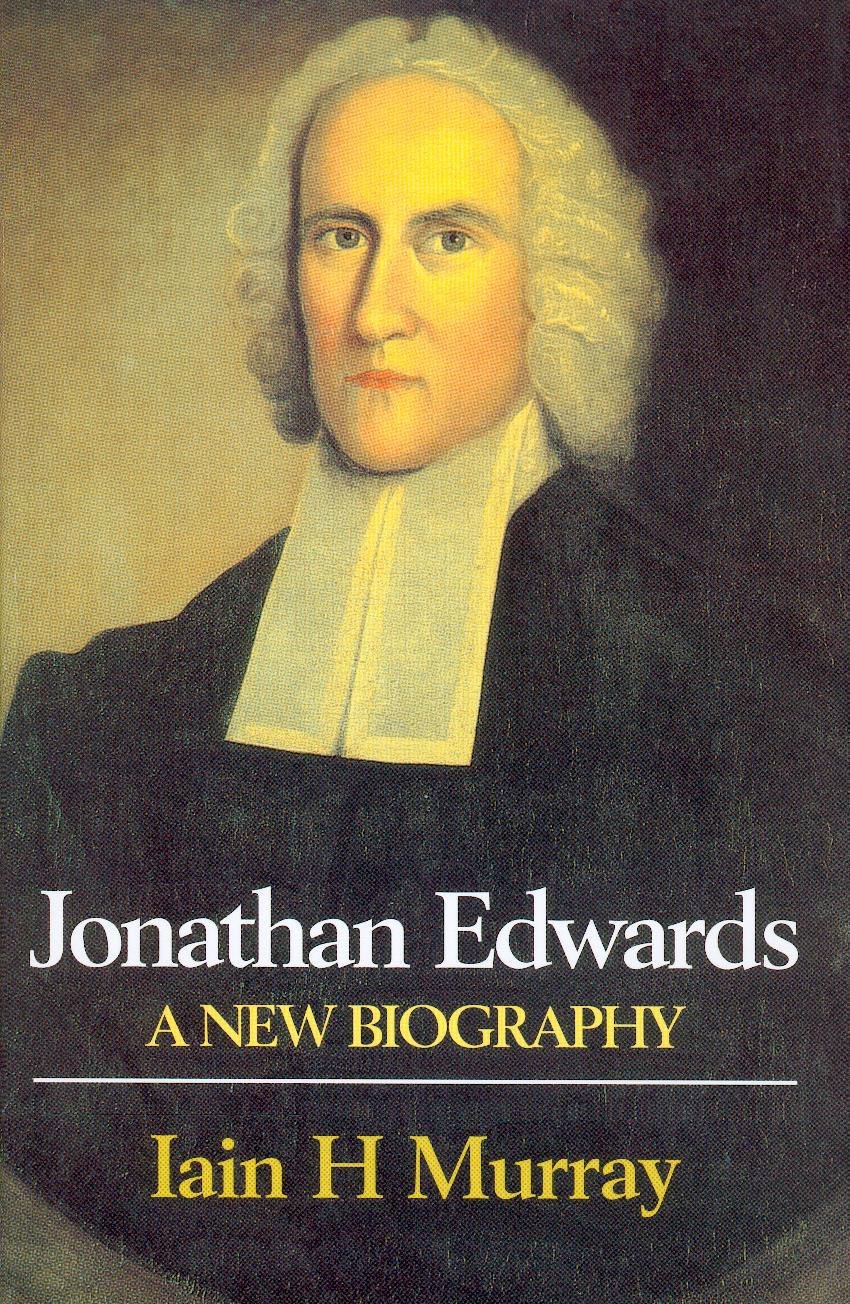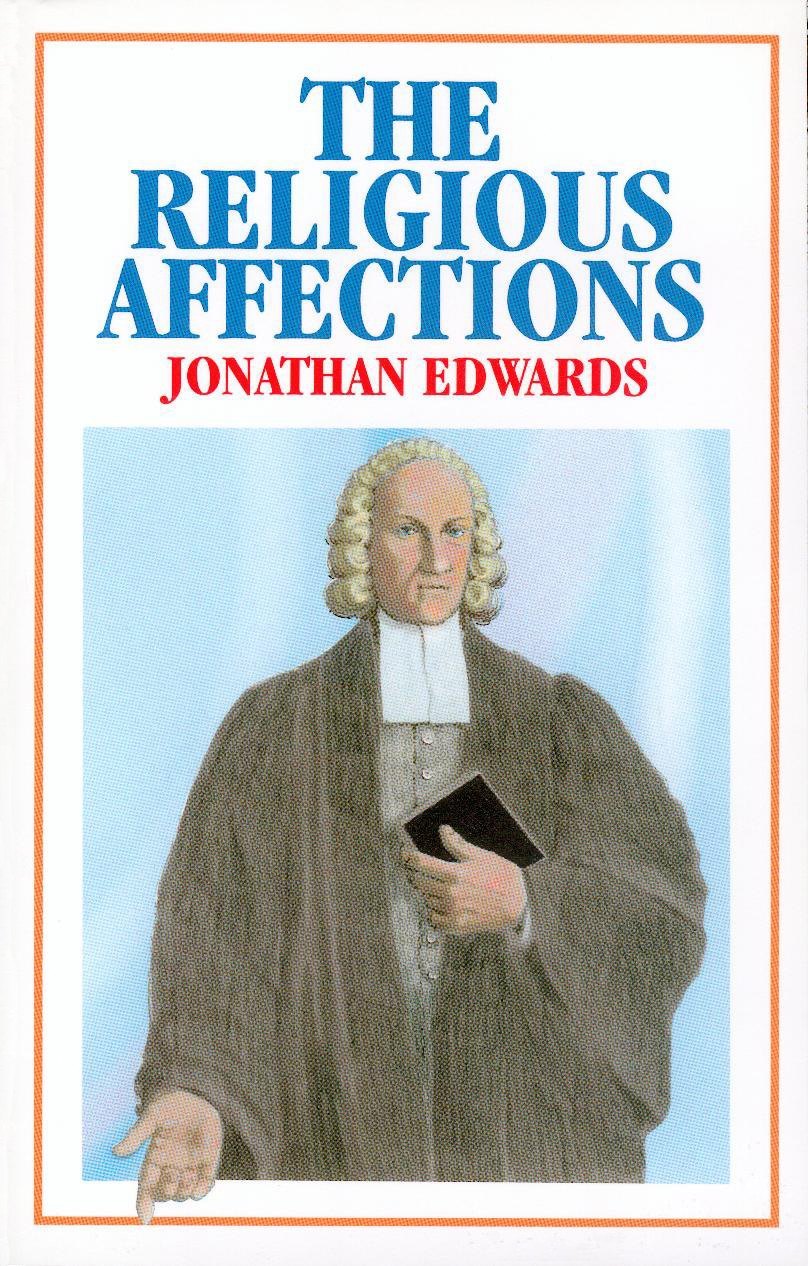Jonathan Edwards 5: Analysing the Revival
The previous article in this series looked at the ‘considerable work of God’ in the revival in Northampton in 1740-1741.1
At the Yale commencement in 1741 Edwards was the preacher and used the occasion to give a spirited defence of the revival, while acknowledging that there had been some excesses. He preached on 1 John 4:1: ‘Beloved, believe not every spirit, but try the spirits whether they are of God: because many false prophets are gone out into the world’. The discourse was published later that year with the title, The Distinguishing Marks of a Work of the Spirit of God.2 There was a substantial preface from William Cowper, a prominent Boston minister. For Scottish readers, John Willison of Dundee described the book as ‘most excellent, solid, judicious and scriptural’.
The first section of the published work consisted of negative signs: no certain conclusions about the genuineness of a revival could, one way or the other, be drawn from any of the following:
(1) that the work is carried on in an unusual or extraordinary way,
(2) that there are bodily effects such as tears, trembling and groans,
(3) that it results in a great deal of noise about religion,
(4) that great impressions are made on the imaginations of those who are influenced by it,
(5) that the example of others is a great means of bringing it about,
(6) that the subjects of it are guilty of great irregularities in their conduct,
(7) that there are many errors in judgement and even some delusions of Satan mixed up with the work,
(8) that some who were thought to be converted should fall away into serious errors or sins, and finally
(9) that it is promoted by ministers insisting very much on the terrors of God’s law.
What then are ‘the sure, distinguishing Scripture evidences and marks of a work of the Spirit of God’ which we may use to judge the genuineness of what appears to be a revival ‘without danger of being misled’? Edwards gives the following, on the basis of the chapter in 1 John from which he took his text: a revival is genuine
(1) when the work is such as to raise the esteem of professed converts for Jesus and seems to establish their minds in the truth of the gospel testimony to Him as the Son of God and the Saviour of men,
(2) when the spirit that is at work operates against the interests of Satan’s kingdom, which lies in encouraging and establishing sin,
(3) when this spirit operates to bring about a greater regard to the Scriptures and establishes them more in their truth and divine origin,
(4) when that spirit operates as a spirit of truth, leading persons to the truth and convincing them of those things that are true, and lastly,
(5) when that spirit operates as a spirit of love to God and man.
Edwards then turned to a series of ‘practical inferences’. His first point was to insist that the recent revival, known to history as the Great Awakening — which had brought about such an unusual concern about the things of religion — was ‘undoubtedly, in general, from the Spirit of God’. What were the facts? As Edwards saw them, and no doubt accurately,
the Spirit that is at work takes off persons’ minds from the vanities of the world and engages them in a deep concern about eternal happiness and puts them upon earnestly seeking their salvation and convinces them of the dreadfulness of sin and of their own guilty and miserable state as they are by nature. It awakens men’s consciences and makes them sensible of the dreadfulness of God’s anger and causes in them a great desire and earnest care and endeavour to obtain His favour. It puts them upon a more diligent improvement of the means of grace which God has appointed, accompanied with a greater regard to the Word of God, a desire of hearing and reading it, and of being more conversant with it than they used to be.
Edwards had taken the opportunity, he told his readers, of comparing the effects of this revival with the experiences of those who had been brought into the kingdom of God in Solomon Stoddard’s time, and it was evident to him that it was the same kind of work — that the hand of God was in it. Comparing the revivals of 1735 and 1741, Edwards maintained that the latter was ‘more purely spiritual’; there were fewer excesses, and the converts spoke about their experiences with greater reverence and humility.
The second point of application was a warning: not to oppose the work, not to do the least thing to hinder it, but rather to promote it as much as possible. Edwards drew a comparison between the low state of the Church of his time and the low state of the Jewish Church when Christ came into the world. It should be no wonder, he believed, that in 1741 Christ’s ‘work should appear a strange work to most’; indeed, ‘it would be a wonder if it should be otherwise’.
His third and final point was directed to the friends of the work. They were ‘to give diligent heed to themselves to avoid all errors and misconduct’. They should expect that Satan, the great enemy, would do his utmost against them. So ‘we had need to watch and pray, for we are but little children; this roaring lion is too strong for us, and this old serpent too subtle for us. Humility and self-diffidence and an entire dependence on our Lord Jesus Christ will be our best defence.’ He warned against pride as
the worst viper in the heart. . . It is ready to mix with everything; and nothing is so hateful to God, contrary to the spirit of the gospel, or of so dangerous consequence; and there is no one sin that does so much let in the devil into the hearts of the saints and expose them to his delusions.
Edwards cautioned his readers against giving too much heed to strong impressions on their minds, for they approach too much to the nature of the extraordinary gifts of the Spirit which were granted to the early Church. Also, probably with an eye to Davenport’s views,3 he warned against despising human learning. And so, he added, the means of obtaining it — study — must not be neglected. He went on to call for method in sermons, ‘which tends greatly to help the understanding and memory’. And he laid considerable stress on the danger of, in an unscriptural way, ‘passing censures upon other professing Christians as hypocrites and ignorant of real religion’; no one was to ‘to suppose that men have ability and right to determine the state of the souls of visible Christians and to make an open separation between saints and hypocrites’.
But Satan did get in and caused enormous damage. Edwards pointed to such factors as carnal fanaticism grieving away the Holy Spirit as the main causes for bringing the revival to an end. Whitefield too believed that a chill came over the work through the imprudence of some ministers. Edwards noted that, through inexperience, neither people nor ministers were able to distinguish properly between solid religion and its delusive counterfeits.
But he was to do all in his power to publish volumes which made these distinctions clear. In 1742 he wrote a significant work entitled Some Thoughts Concerning the Present Revival of Religion in New England. Edwards acknowledged that there were ‘a great many errors and sinful irregularities mixed with this work of God, arising from our weakness, darkness and corruption’, but it did ‘not hinder this work of God’s power and grace from being very glorious’. He noted from church history ‘that it has been a common device of the devil to overset a revival of religion when he finds he can keep men quiet and secure no longer; then he drives them to excesses and extravagances’.4 Indeed, the devil will do his utmost to stir up the open enemies of religion against the revival, but he will exert his ‘main strength’ to influence against it those who are truly religious.
The best known of Edwards’ works produced in the aftermath of these revivals is The Religious Affections, which arose out of a series of sermons preached in late 1742 and early 1743 on 1 Peter 1:8: ‘Whom having not seen, ye love; in whom, though now ye see Him not, yet believing, ye rejoice with joy unspeakable and full of glory’. The book’s focus on the affections is in contrast with Chauncy’s emphasis on reason and judgement in religion. Indeed the heading of the first section of this book is: ‘True religion largely consists in holy affections’. Edwards was anxious to answer the question: ‘What are the distinguishing qualifications of those that are in favour with God and entitled to His eternal rewards?’ Or, as he rephrased his question: ‘What is the nature of true religion? And wherein do lie the distinguishing notes of that virtue and holiness that is acceptable in the sight of God?’.5
By 1746 it was clear that by no means all who, a few years earlier, appeared to be converts had experienced a saving change; many even of those who had appeared to be ’eminent saints’ had fallen away from their profession. Edwards wrote:
It is with professors of religion, especially such as become so in a time of outpouring of the Spirit of God, as it is with blossoms in the spring; there are vast numbers of them upon the trees, which all look fair and promising; but yet many of them never come to anything. . . It is the mature fruit which comes afterwards, and not the beautiful colours and smell of the blossoms, that we must judge by.6
It was no new thing, he pointed out. It had been so in Josiah’s time, and under the preaching of the Saviour, and at the Reformation. So when, during the Great Awakening, Edwards saw multitudes whom the devil had deceived about the state of their souls, he felt it necessary to distinguish clearly between the common and the saving operations of the Holy Spirit. It ought to be borne in mind that during an outpouring of the Spirit the non-saving effects are likely also to be more remarkable than at other times.
Because religion so much moulds the affections for good or for ill, Edwards set himself to distinguish between those which were the result of the saving influences of the Spirit of God and those which were not necessarily so. The bulk of the book consists of two sections, actually parts 2 and 3 of the work. Part 2 sets out to show ‘what are no certain signs that religious affections are truly gracious or that they are not’ — in other words, these are signs which do not tell one way or the other that the person who has them is gracious. They include the following: great effects on the body, fluency and fervour, coming with texts of Scripture, the appearance of love, joys following in a certain order, much time and zeal in duty, much expression of praise, great confidence, and moving testimony. While, of course, they are all consistent with saving grace, none of them proves its presence.
Part 3, on the other hand, shows ‘what are distinguishing signs of truly gracious and holy affections’. Edwards’ headings are:
(1) Gracious affections are from divine influence,
(2) Their object is the excellence of divine things,
(3) They are founded on the moral excellency of objects,
(4) They arise from divine illumination,
(5) They are attended with a conviction of certainty,
(6) They are attended with evangelical humiliation,
(7) They are attended with a change of nature,
(8) They beget and promote the temper of Jesus,
(9) They soften the heart,
(10) They show beautiful symmetry and proportion,
(11) False affections rest satisfied in themselves,
(12) Religious affections have their fruit in Christian practice.
And under this last heading Edwards indicates that Christian practice is the chief sign to ourselves and also to others, which corresponds with what he wrote for himself under the heading, ‘Directions for Judging of Persons’ Experiences’: ‘See to it that they long after holiness and that all their experiences increase their longing’.
Notes
- This article is taken with permission from the Free Presbyterian Magazine, October 2006. Other articles in this series on Jonathan Edwards appear on the website as follows:
1. ‘A New Sort of Affection’ on June 20th 2006.
2. Eager Pursuits after Holiness on August 22nd 2006.
3. A Time of Surprising Conversions on August 29th 2006.
4. A Considerable Work of God on September 19th 2006.
6. Division in Northampton on January 11th 2007.
7. Stockbridge and Princeton on March 16th 2007.
They are taken with permission from the Free Presbyterian Magazine of June, July, August, September, & October 2006, and December 2007.www.fpchurch.org.uk - Reprinted in Select Works of Jonathan Edwards, vol 1, 1965 edition, pp 75-147, also in Works, vol 2, pp 257-277.

The Works Of Jonathan Edwards
Volume 2
price $43.20Description
The previous article in this series looked at the ‘considerable work of God’ in the revival in Northampton in 1740-1741.1 At the Yale commencement in 1741 Edwards was the preacher and used the occasion to give a spirited defence of the revival, while acknowledging that there had been some excesses. He preached on 1 John […]
- An itinerant minister, whose extreme opinions did considerable damage (see Part 4).
- Quoted in Iain H. Murray, Jonathan Edwards, A New Biography, p 235.

Jonathan Edwards
A New Biography
price $29.70Description
The previous article in this series looked at the ‘considerable work of God’ in the revival in Northampton in 1740-1741.1 At the Yale commencement in 1741 Edwards was the preacher and used the occasion to give a spirited defence of the revival, while acknowledging that there had been some excesses. He preached on 1 John […]
- Jonathan Edwards, The Religious Affections, 1961 edition, p. 15. Chauncy was a leading Boston minister who opposed the revivals (see part 4).

price $17.10Description
The previous article in this series looked at the ‘considerable work of God’ in the revival in Northampton in 1740-1741.1 At the Yale commencement in 1741 Edwards was the preacher and used the occasion to give a spirited defence of the revival, while acknowledging that there had been some excesses. He preached on 1 John […]
- Quoted in Murray, Jonathan Edwards, p 251.
Latest Articles
Finished!: A Message for Easter March 28, 2024
Think about someone being selected and sent to do an especially difficult job. Some major crisis has arisen, or some massive problem needs to be tackled, and it requires the knowledge, the experience, the skill-set, the leadership that they so remarkably possess. It was like that with Jesus. Entrusted to him by God the Father […]
Every Christian a Publisher! February 27, 2024
The following article appeared in Issue 291 of the Banner Magazine, dated December 1987. ‘The Lord gave the word; great was the company of those that published it’ (Psalm 68.11) THE NEED FOR TRUTH I would like to speak to you today about the importance of the use of literature in the church, for evangelism, […]
